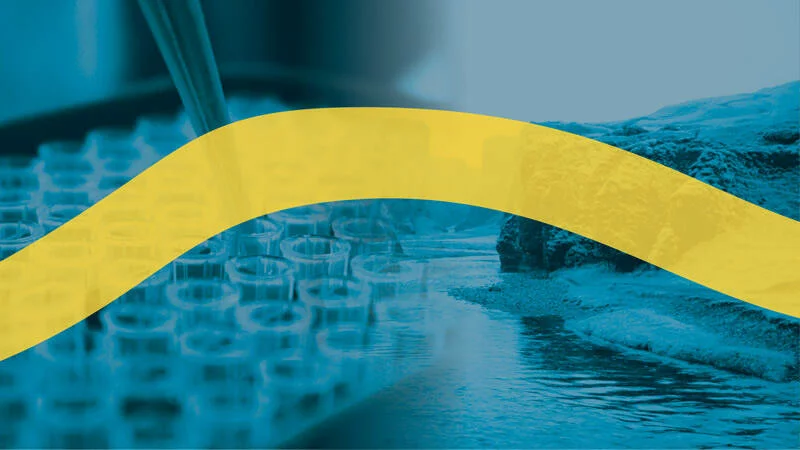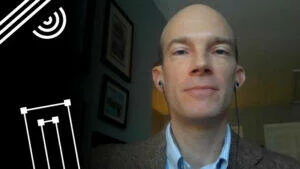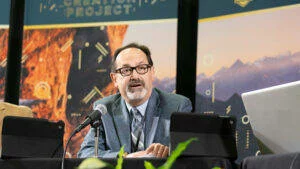Like Theophilus of Luke’s gospel, many American, inerrantist evangelicals today are expectant “to know the certainty of the things [they] have been taught” (Luke 1:4). As I reflect upon the forum topic, three questions come to mind: 1) How did we get to the point we are now? 2) What options remain? 3) How does the situation bear on my walk with Christ?
How Did We Get to the Point We Are Now?
In the middle of the seventeenth century, the Westminster divines convened for two reasons: “to show harmony” between the church of England and other Reformed churches, and “to effect such changes on her polity and worship as would bring her into closer union with the Church of Scotland and the Reformed Churches on the Continent.”See A. Mitchell and J. Struthers, ed., “Introduction,” in Minutes of the Sessions of the Westminster Assembly of Divines, (London: William Blackwood and Sons, 1874), xvii. Traditionally, church historians have documented how the Westminster Confession of Faith (1647) was derived, by and large, from the Irish Articles of Faith (1615).Compare Philip Schaff, The Creeds of the Evangelical Protestant Churches, Volume 3. Until recently, not many have considered how the cultural milieu in which the WCF was drafted was marked by a revival of ancient Greek skepticism and that a neo-Pyrrhonism had been sweeping over Europe since the late Renaissance.See Carlos Bovell, By Good and Necessary Consequence: A Preliminary Genealogy of Biblicist Foundationalism (Eugene: Wipf and Stock, 2010); and Rehabilitating Inerrancy in a Culture of Fear (Eugene: Wipf and Stock 2015). For the first time, segments of the Western church were deliberately appealing to their doctrines of Scripture as the principal means by which to maintain the integrity of Christian faith both over against intra-Christian opposition (in this case, “Romanists” and “enthusiasts”) and in their engagement with wider cultural pressures mounted by rampant Pyrrhonism.For the influence of ancient Pyrrhonism on the intellectual developments of seventeenth and eighteenth-century Europe, see, for example, the seminal articles by Richard Popkin: “The Sceptical Crisis and the Rise of Modern Philosophy, I,” The Review of Metaphysics 7 (1953): 132–51; “The Sceptical Crisis and the Rise of Modern Philosophy, II,” The Review of Metaphysics 7 (1953): 307–322; “The Sceptical Crisis and the Rise of Modern Philosophy, III,” The Review of Metaphysics 7 (1954): 499–510. I provide the following excerpts side-by-side so that readers may see what progression I am referring to:
“[The Synod] following the examples of the orthodox Fathers, receives and venerates with an equal affection of piety, and reverence, all the books both of the Old and of the New Testament—seeing that one God is the author of both—as also the said traditions, as well those appertaining to faith as to morals, as having been dictated, either by Christ’s own word of mouth, or by the Holy Ghost, and preserved in the Catholic Church by a continuous succession.” (The Council of Trent)The Council of Trent (1546), 4.1.
“The Holy Scriptures contain all things necessary to salvation, and are able to instruct sufficiently in all points of faith that we are bound to believe, and all good duties that we are bound to practice.” (The Irish Articles of Religion)The Irish Articles of Religion (1615), 6.
“Concerning objects proposed for study, we ought to investigate what we can clearly and evidently intuit or deduce with certainty, and not what other people have thought or what we ourselves conjecture. For knowledge can be attained in no other way.” (Descartes)Descartes, “Rules for the Direction of the Mind” (1628). Readers should know that although Descartes began working on the “Rules” prior to 1628, it was published posthumously (sometime after 1650). The point is not that the Westminster divines had a copy of Descartes before them, but rather that the two means of gaining access to simple propositions—“intuition and deduction”—were widely being set forth by philosophers, mathematicians and scientists as methodological aids in countering unchecked skepticism at the very time that the WCF was being drafted. The citation is Rule 3, taken from The Philosophical Writings of Descartes (New York: Cambridge University Press, 1985), 13, and for reference to “intuition and deduction,” 7.
“The whole counsel of God concerning all things necessary for his own glory, man’s salvation, faith and life, is either expressly set down in Scripture, or by good and necessary consequence may be deduced from Scripture: unto which nothing at any time is to be added, whether by new revelations of the Spirit, or traditions of men.” (Westminster Confession of Faith)Westminster Confession of Faith (1647), 1.6.
Notice that the development (dare I say, innovation) the Westminster divines bequeathed to posterity—in a confession, no less—is a methodological artifact of their times: the Bible can be used against Pyrrhonistic skepticism in a way analogous to how Descartes, Mersenne and other thinkers were responding to it. In other words, the WCF did not merely identify the English church with their Scottish brothers and sisters by articulating a consensus on the priority of scripture against Roman Catholic tradition, but it also introduced into the tradition of Protestant confessions the idea that the Bible can be used in analogous ways to how modern thinkers sought to ward off the Pyrrhonist threat of early modern culture.
What Options Remain?
In due course, the broad Protestant (and Calvinistic) theological framework laid out by the WCF was transmitted to American evangelical culture through, among other things, the scholarship and publications of “Old Princetonians” such as Charles Hodge (1797–1878), his son, Archibald A. Hodge (1823–1886), and the last principal of Princeton Theological Seminary, Benjamin B. Warfield (1851–1921), all of whom sought to preserve the authority of the Bible in the face of perceived attacks from higher criticism and the advent of evolutionary thought.
In his section on theological method, Charles Hodge observed that “so long . . . as the binding authority of Scripture is acknowledged, the temptation is very strong to press the facts of the Bible into accordance with our preconceived theories,” but theologians are to resist this temptation, striving in practice to do the reverse.Charles Hodge, Systematic Theology, 1.1.5. As a general precaution, Hodge’s hermeneutical concern is legitimate: all parties involved must do their very best not to make the Bible say whatever they want (or need) it to say. Even so, we remark that Hodge was principally guarding against the untrammeled application of the philosophy of his day to the reading of scripture. By contrast, twentieth-century American evangelicals began to emphasize that even conclusions drawn from scientific inquiry must be made to accord with the teachings of the Bible. How does this bear upon our modern notion of certainty?
Charles Hodge had counseled that “if the Scriptures teach that sin is hereditary, we must adopt a theory of sin suited to that fact . . . If the Bible teaches that we bear the guilt of Adam’s first sin, that Christ bore our guilt, and endured the penalty of the law in our stead, these are facts with which we must make our principles agree.”Ibid. Hodge obviously had his sights on theological positions that were at variance with Old Princeton’s Scottish predestinarian tradition. What survives among inerrantist evangelicals today is that resilient intuition that motivates us to say that if the Scriptures teach “X” in any area of science, we must adopt scientific theories appropriate to this teaching.
Indeed, this is exactly what we see today in evangelical churches, colleges, and youth groups across the United States: if the Bible teachesAnywhere there is disagreement between what evangelicals believe that the Bible teaches and what they understand science to have discovered has potential to become another area of conflict. the existence of an historical Adam, we must adopt genetical, paleontological, and anthropological theories suited to this fact. If the Scriptures teach a beginning of the universe, we must adopt cosmological, astronomical and physical theories suited to this fact, and so on.Evangelical hope that science will ultimately vindicate inerrantist evangelical theology is indomitable: “[Evangelical] theology can provide predictions (or retrodictions) of empirical data (e.g., that humans arose in the Mideast, various inferences from models of a universal flood, young-earth predictions about the age of our earth, gaps in the fossil record) and explanations for empirical problems that arise in that practice of science (e.g., the origin of life, information in DNA).” J. P. Moreland, “Theistic Science and Methodological Naturalism,” in The Creation Hypothesis: Scientific Evidence for an Intelligent Designer, ed. J. P. Moreland (Downers Grove: InterVarsity Press, 1994), 54. Anywhere there is disagreement between what evangelicals believe that the Bible teaches and what they understand science to have discovered has potential to become another area of conflict.
One option is to overturn the certainty the public may have as to whether science really has established this or that offending theory. Many evangelicals have applied this strategy to macro-evolution, for example; creationists and intelligent design movements come to mind. Another option is to call into question our certainty that the Bible actually teaches “X.” Some evangelicals have also explored this possibility (some go so far as to investigate whether the Bible teaches its own inerrancy, which has caused some uproar). Yet another option is to question why we should be so certain that science and the Bible will ultimately agree in the first place. Some evangelical scientists have taken this route.I have in mind “non-concordists” such as Denis Lamoureux who observe that science and the Bible will not agree and should not be made to agree since the latter is prescientific. For discussion, see K. Turner and B. Eisenback, “Discordant Views on Concordism.”
How Does the Situation Bear on My Walk with Christ?
As I reflect on how certainty in dealing with conflicts in science and religion affects my “personal” walk in Christ, I tend towards a position that may prove unpopular among evangelical apologists, for I believe there is something to be said for an approach that respects the autonomy of the respective domains. Both science and theology should be given ample space for inquiry according to rules appropriate to the subject matter of each.The position has affinities to “NOMA” (nonoverlapping magisteria). To illustrate the point, I close with an anecdote.
A few years ago, I was engaged in prayer and during prayer (I was praying a version of the Rosary) I heard a voice call out the name “Sylvanus.”The name was obviously not Sylvanus. I ask the reader’s pardon, but I do not want to give any more details than I have. It was a voice I heard in my mind and not that of a nearby person—this is difficult to explain—but upon “hearing” the voice I felt compelled to interrupt the Rosary and pray specifically for Sylvanus. Later that day, I reflected on how remarkable my prayer was that morning, so I checked in with an acquaintance who knew Sylvanus to ask how Sylvanus was doing. My acquaintance was astonished that I should ask about Sylvanus because just that week, Sylvanus confided that he was in serious trouble. At my request, my acquaintance helped me contact Sylvanus, and I set up a meeting. (I had not seen, nor thought about, Sylvanus in a year or two.) When Sylvanus and I met for coffee, Sylvanus was nonplussed. Sylvanus asked if our mutual acquaintance had asked me to meet with him. I said no and that it was I who initiated the meeting as a result of what happened during prayer. Sylvanus did not entertain this explanation for a moment but instead surmised that our mutual acquaintance asked me to meet and then I, out of concern, obliged.
For my part, I was certain that God spoke to my heart, prompting me to pray for Sylvanus. I am certain that in some spiritual way this explanation is on point. As for Sylvanus, he should not be faulted for refusing my explanation and concluding that our mutual acquaintance asked me to meet. I do not think this point of conflict needs to be resolved since the spiritual component coincides but does not overlap with the non-spiritual context; therefore, neither of us would be presuming our certainty wrongly.







Comments
Be the first one to make a comment!